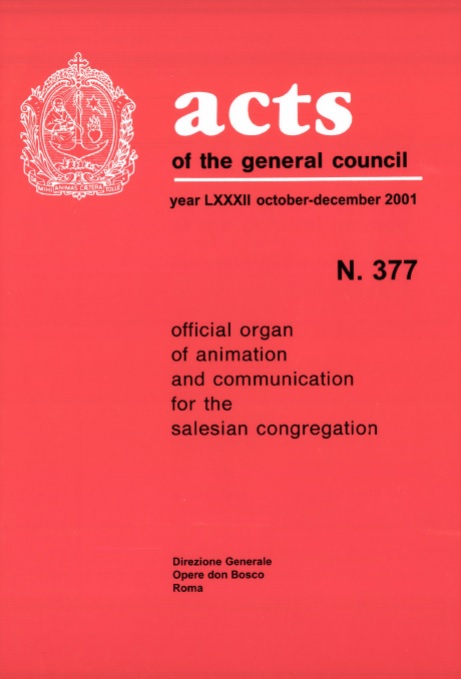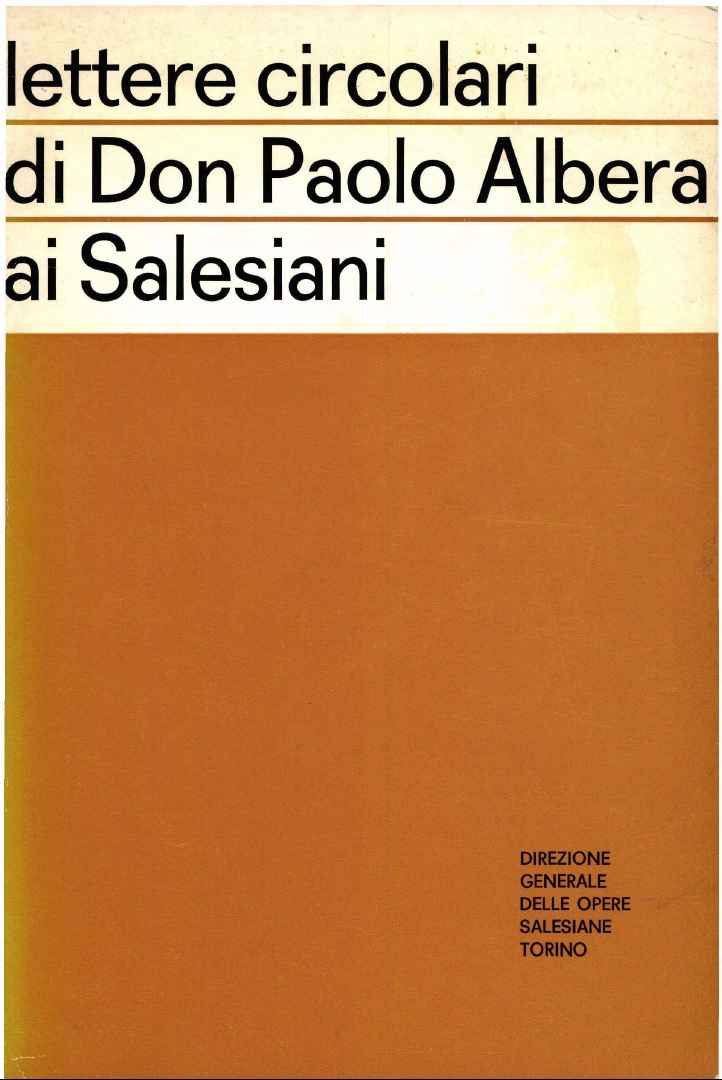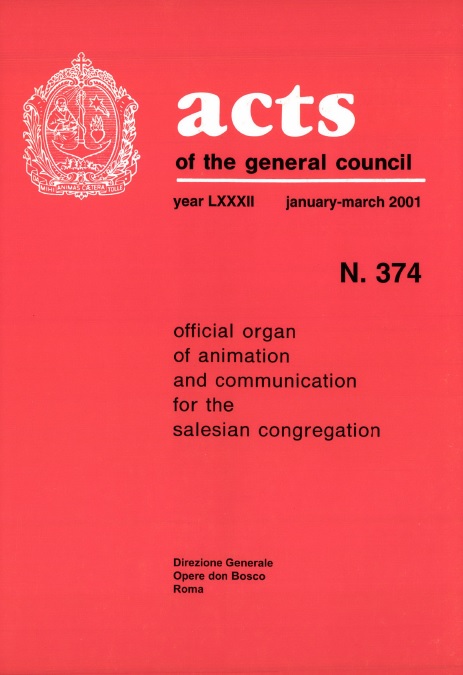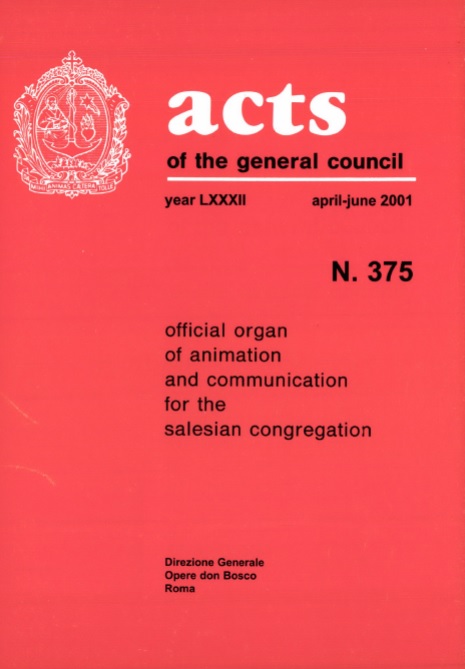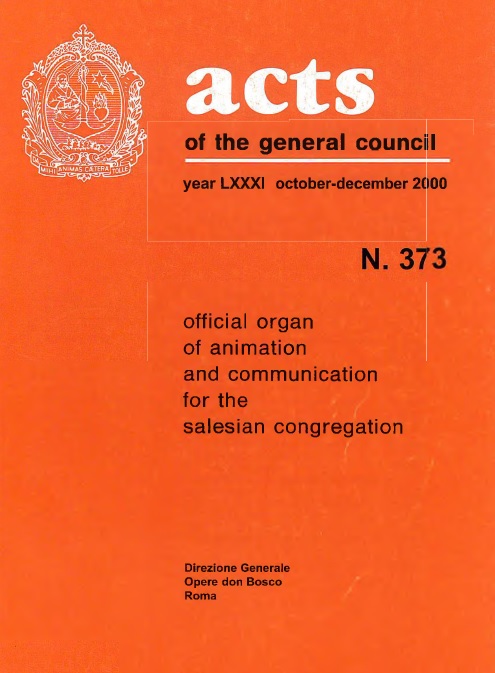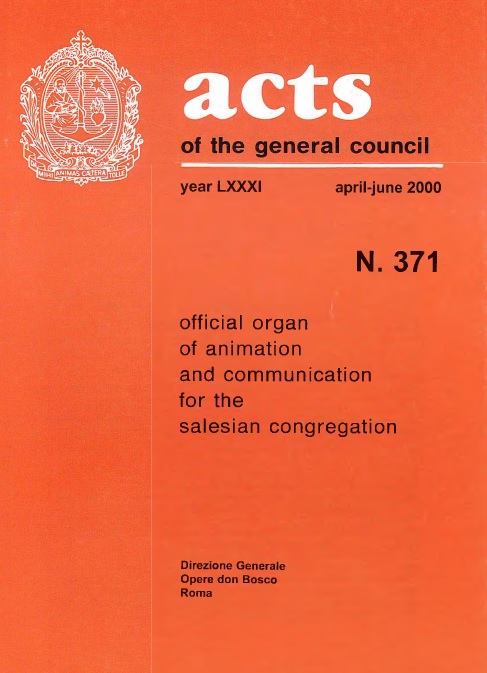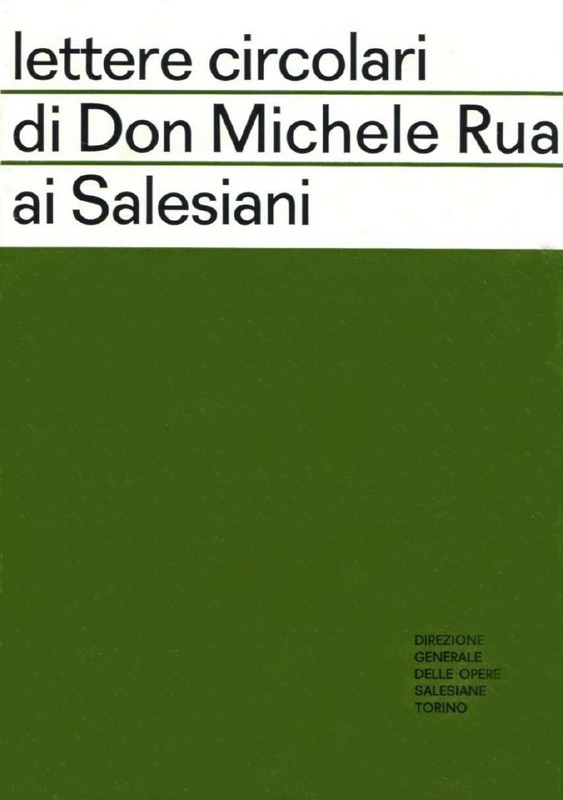The letter shares the author’s reflections on a year of illness, expressing gratitude for God’s grace and the support of confreres. Despite physical weakness, they maintain clarity of mind and contribute to the Congregation’s welfare. Continue reading “Juan Edmundo Vecchi – “Sickness and old age in the salesian experience” in “Acts of the General Council of the Salesian Society of St John Bosco””
